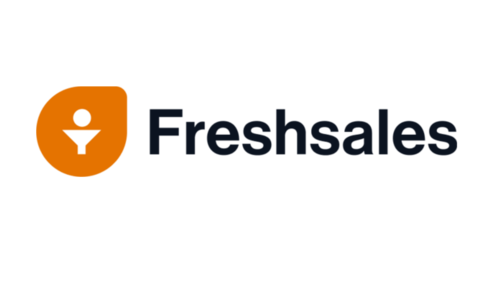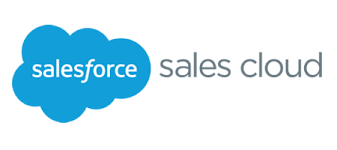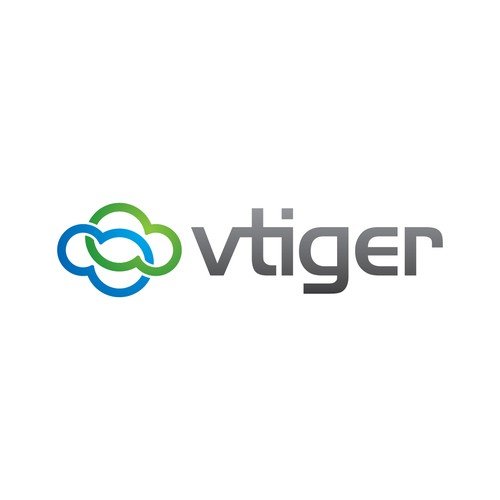The 8 Best AI CRM Software For 2025
Unpacking the AI myth
Written by
Last updated
Yuliya Lelyakh
Lili Marocsik
&
June 20th, 2025
Does AI really improve CRM software?
Even though AI is not as mature in CRM systems as it has been in other areas so far, there are a few common and tested use cases:
AI customer service agents can assist in answering client questions if you provide them with the right data set or resources
AI can help you with workflows or advise on their setup
Predictive analytics can help you understand your pipeline better and set the right emphasis
It can score leads, so you can prioritize them better
Apply and automate personalized marketing
You can integrate an AI notetaker to your CRM and get a call summary straight to your meeting event
But the tools promise more, so we gathered a
List of all AI capabilities of the CRM tools we tested:
ActiveCampaign:
Generates content for emails, SMS, and landing pages.
Performs lead scoring and sentiment analysis.
Offers AI-powered A/B testing and predictive sending.
Freshsales:
Generates sales emails and SMS content.
Provides deal insights and forecasting.
Suggests next best actions and resolves duplicate contacts.
Zoho CRM:
Enriches lead data and suggests workflows.
Analyzes email intent and summarizes communications.
Integrates with other Zoho tools for enhanced functionality.
Pipedrive:
Predicts deal closure probability.
Summarizes email content and generates emails.
Folk:
Automates tasks and provides insights across the customer journey.
Tracks email interactions and sales analytics.
HubSpot:
Offers AI-powered sales assistant features.
Provides insights and recommendations based on customer data.
Salesforce:
Uses Einstein AI for relationship and conversation insights.
Scores leads and opportunities, providing sales forecasting.
Vtiger:
Incorporates AI for sales automation and engagement.
Provides analytics and marketing automation capabilities.
General AI Capabilities:
Automated customer service and routine process automation.
Predictive analytics for sales and customer behavior insights.
Btw, our review contains a few affiliate marketing links. If you purchase any of the tools, we might receive a small commission.
Yuliya Lelyakh
CRM Development & Implementation Consultant, COO at Inceptly
My takeaways from reviewing the AI CRM software and their AI capabilities:
I can’t say that any CRMs I’ve tested have AI assistants powerful enough to really wow the users (unfortunately, I was unable to test Salesforce’s Einstein Copilot). That said, the AI functionalities offered by many CRMs on the market today have made massive leaps in quality and actual usability over the last year alone, so I’m certain we’ll see them become a standard across CRM systems very soon, with sales managers relying on integrating AI into CRM more and more as they get smarter and more powerful.
Zoho One gives competitors a run for their money with the advanced features of AI CRM solutions. Best value-to-price ratio and AI capabilities that are actually useful rather than just gimmicky (full disclosure: I didn't think much of Zia last year). Zoho CRM is also a worthwhile solution, but I strongly prefer Zoho One for the extra set of tools it offers without having to pay that much more. Zoho can work for a business of any size, in any niche, but would be best for companies that need something as close to custom-built as possible, but at a fraction of the cost of a custom system.
Freshworks’s Freshsales Suite impressed me with a robust set of features coupled with a wide array of customization options and great usability. It's worth checking out for most businesses looking for something powerful, but also quick and easy to set up and run with.
ActiveCampaign truly shines when it comes to marketing automation and would be the best option for companies in the e-commerce space and those that rely heavily on email marketing.
Spoiler Alert
The Best AI CRM Software For 2025:
| Tool Name | Best For | Price Basic Plan |
|---|---|---|
| 1. ActiveCampaign | e-Commerce | Starter $15/mo |
| 2. Freshsales | Businesses of All Sizes and Niches | Growth $11/mo |
| 3. ZohoCRM | Value-driven Businesses | Standard €20/mo |
| 4. Pipedrive | Sales-driven SMEs | Essential $24/mo |
| 5. Folk | SMEs with basic CRM needs | Standard $25/mo |
| 6. HubSpot | Ideal for users of other HubSpot services | Starter $20/mo |
| 7. Salesforce | Large Enterprises | Starter $25/mo |
| 8. Vtiger | Customizable-friendly Businesses | Standard $15/mo |
The AI CRM Software Comparison
Freshsales from Freshworks
Stop wasting time with wrong LLM responses
Get our 20-page Ebook now!
ChatGPT Power Boost: Become a Productivity Pro
We’ve tested all LLMs in-depth and share the secret sauce with you:
Powerful LLM hacks from AI CEOs Fedor Pak from Chatfuel, Krish Ramineni from Fireflies.AI and many more
LLM Blueprint - Get the basics right
The Best LLM for your use case
No more hallucinations, get only reliable answers
Salesforce Sales Cloud / Einstein AI
Vtiger
Yuliya Lelyakh
CRM Development & Implementation Consultant, COO at Inceptly
About the Author
Yuliya Lelyakh, CRM Development & Implementation Consultant, COO at Inceptly
As a person who liked to play with spreadsheets as a child and built her first Excel-based CRM from scratch at age 16 while working a summer job at her dad’s office, Yuliya was obsessed with efficiency and order from an early age. Armed with a degree in Business Administration, she worked in several marketing-adjacent roles and startups before re-discovering her true passion.
For the last five years, Yuliya has been helping SMEs ditch their busy work and embrace efficiency through custom CRM solutions and process automation. Coming from a family of small business owners and having worked with multiple SMEs from various niches, she knows all about the day-to-day struggles and concerns that her clients deal with and finds fulfilment in helping them set up custom CRM solutions and back office systems to fuel their growth and become leaner.
Full disclosure: Yuliya is a Zoho Authorized Consulting Partner. But that doesn’t mean that she recommends Zoho to anyone who asks her for a suitable solution to their business needs, as it all depends on your specific needs and requirements as a business.
Frequently asked questions about AI CRM tools
When do you need a CRM system in general?
When:
you feel overwhelmed by the number of tasks and requests you need to complete and messages to reply to daily; the admin tasks are keeping you from working on scaling your business
your sales team (if you have them) has been dropping the ball on client projects or deals; things have been slipping through the cracks more and more lately
you spend more time searching for and reviewing client history/data than talking to your clients or working on service/product delivery
you constantly have to apply two or more filters to your spreadsheet to zoom in on the data you’re looking for
you have at least one email follow-up or welcome sequence that could be automated (and save you several working hours per week)
you’re tired of switching between spreadsheets, email, telephony, internal team chat, contract generation, invoicing, analytics, and other tools, and wish there was a single source of truth for you and your team (ideally, with all the data flowing in automatically, the templates and checklists of actions you need to complete at each step of the sales process set up, and follow up actions and reminders automated for you)
When integrating AI into your CRM, there are no “one size fits all” solutions. I’d recommend trialling several systems that offer the features you need within the budget that works for you. Before committing to a tool, check the list of available integrations and consider your potential future requirements to ensure that the AI CRM is scalable and could grow with your business.
Pro tip: If 3 hours of your time cost more than a monthly plan of the AI CRM tool that satisfies your feature needs, getting it will be a worthwhile investment, even if you are a solopreneur.
What is a CRM and what are its main benefits?
A Customer Relationship Management (CRM) functions as a digital management system for business operations. It tracks customer interactions, manages sales processes, and facilitates service delivery. For businesses managing multiple clients or leads, a CRM helps organize and maintain detailed records.
AI CRM use cases are:
Personalized Customer Experiences
Predictive Analytics for Sales
Automated Customer Service
Accurate Sales Forecasts
Routine Process Automation
Customer Needs Prediction
How do I choose the right AI CRM?
With over 2,000 CRM options available, selection criteria should include budget considerations, team size, and specific functionality requirements. Important factors include contact management capabilities, reporting functions, and automation features. Providers like Zoho and folk offer various plans for different business scales and requirements.
What are the differences between AI CRM software, ERP and marketing automation tools?
These systems serve distinct business functions:
CRM manages customer relationships and interactions
ERP (Enterprise Resource Planning) coordinates internal operations, including finance and supply chains
Marketing automation facilitates marketing campaigns and lead generation These systems can be integrated for optimal functionality.
What are the limitations of an AI CRM software?
A CRM does not manage production, warehouse operations, or product shipping. System effectiveness depends on data input quality and consistent usage. While some CRMs focus on data management, comprehensive platforms like ActiveCampaign include additional features for task automation, landing page creation, and invoice management.
Does my small business need an AI CRM software?
CRM necessity for small businesses depends on customer management requirements and growth objectives. Consider starting with basic features and scaling up as needed. Many providers, including Pipedrive, offer trial periods for system evaluation.
Benefits of AI based CRM tools for small businesses
Automate Routine Tasks: AI can handle repetitive tasks such as email follow-ups, scheduling appointments, and data entry.
Personalize Customer Experiences: AI can analyze customer data and preferences to create personalized marketing campaigns, product recommendations, and customer service interactions.
Predict Customer Behavior: AI can analyze customer data to predict customer behaviour.
Gain Real-Time Insights: AI can analyze real-time data from various sources and give businesses valuable insights into customer behaviour, sales trends, and market dynamics.
Improve Customer Satisfaction: By automating tasks, personalizing interactions, and providing real-time insights, AI CRM tools can significantly improve customer satisfaction.
Related reading:
Best 6 AI CHATBOTS for 2024 - Let these AI tools take over Client Conversations for you
AI TOOL QUIZ - Get your personalized AI tool recommendations
The ultimate LLM (LARGE LANGUAGE MODEL) comparison with lots of tricks and tips
Text-to-Speech Showdown: Which AI VOICE GENERATOR Sounds the Most Human?












